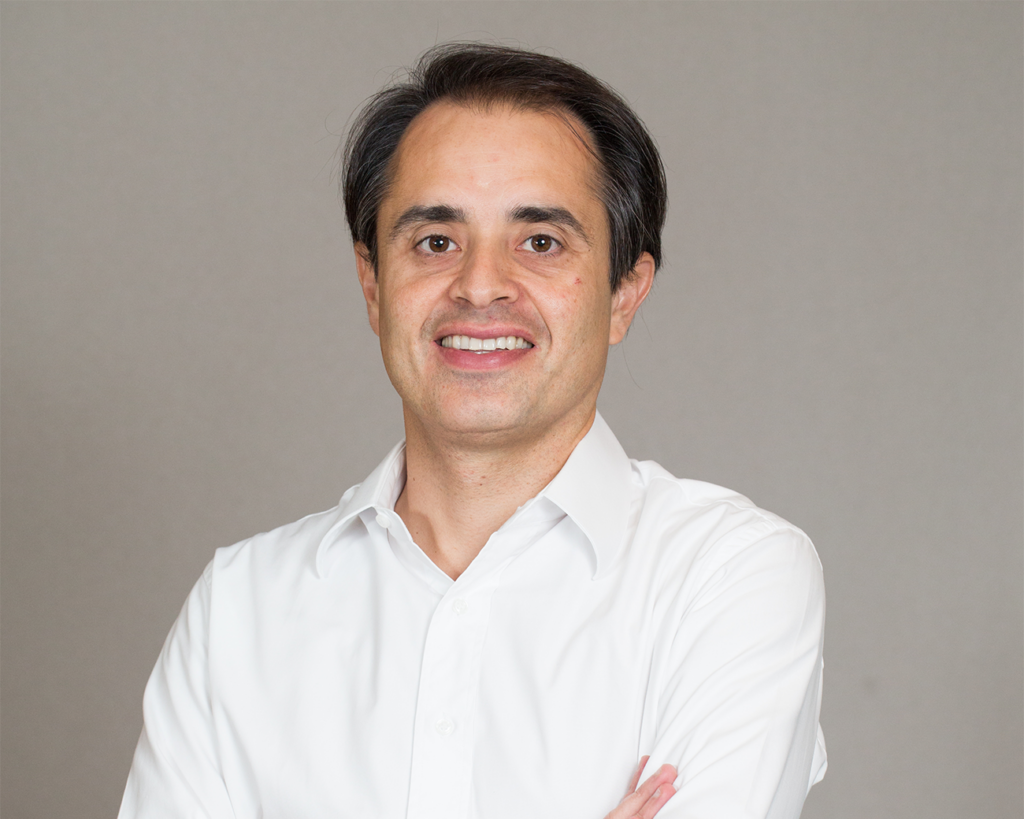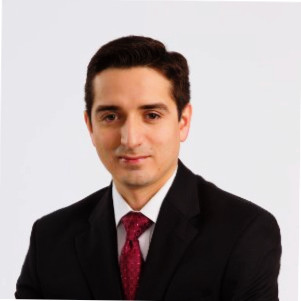LP Profiles, Member Profiles
An Interview with Alvaro González, Altamar Private Equity
17 November 2011

LAVCA recently spoke with Alvaro González, Executive Director Latin America for Altamar Private Equity, about the fund of funds’ activities in the region and new office in Chile.
 LAVCA: Please give some background on Altamar. What are your assets under management? What is your diversification strategy, by asset class and geography?
LAVCA: Please give some background on Altamar. What are your assets under management? What is your diversification strategy, by asset class and geography?
González: Founded in 2003, Altamar is a global private equity fund of funds manager with approximately $1.7bn assets under management, coming exclusively from Spanish and Latin American investors. About 85% of our AUM is dedicated to traditional private equity strategies (primaries and secondaries) while the remaining 15% is dedicated to private equity real estate fund of funds. All funds managed by Altamar have a global focus, with different weights between the two largest regions (US and Europe) depending on the cycle, and always following a “bottom-up” investment criteria from a decision making standpoint. Moreover, 10% of each vehicle is allocated to emerging markets.
LAVCA: Roughly what percentage of your portfolio do you generally allocate to emerging markets private equity? To Latin America?
González: In our global vehicles 10-15% is allocated to emerging markets. This will remain mostly unchanged in the case of Asia, and will significantly increase in Latin America during the next several years, as we believe the Latam PE market offers very attractive potential returns from both a macro and micro perspective. However, it is a young PE market with few players that have a long-standing and proven track record, and therefore, it is a market that needs to be approached with a well-thought out strategy from a portfolio construction standpoint.
LAVCA: What would be a typical size of a commitment that you make to a fund?
González: We typically invest between $10M-$40M per underlying fund. The decision on the final commitment size is mostly based on the relative size of the underlying fund, and also the number of investments they expect to make. In effect, we always try to have a relatively “small dispersion” across the portfolio in terms of the equity investments we end up making in each of the underlying companies.
LAVCA: How do you go about finding and selecting the best fund managers? What are the key characteristics you look for?
González: The most important factor is a proven track record across several cycles. We are very risk averse, and therefore are always more interested to review how each manager has done during the worse vintages.
In terms of finding good managers, the best recipe is to be on the road meeting with managers well ahead of their fund raising process. In this respect, we make a very intensive effort in mapping the PE markets and establishing a fundraising forward calendar, which is updated on an ongoing basis. This strategy enables us to do a thorough due diligence, which is undertaken over a fairly long period of time.
For instance, in Latin America, we have spent the last three years thoroughly analyzing all the relevant Latam managers.
LAVCA: Has your ability to fundraise in the region affected your decision to start investing there as well?
González: Yes and No.
No: We have always been interested in the Latam region because we strongly believe that there are excellent PE market dynamics which should enable us to make good investments from a risk/return standpoint. And it is for this reason that we have spent significant amount of time and resources analyzing the market and designing what we believe is the best investment and portfolio construction strategy for this region.
Yes: Having also spent significant time fundraising in the region has influenced our view of the Latam PE market in a very favorable way. In effect, it has given us even more confidence about the attractiveness of the opportunity, and has also given us a better perspective as to how best approach this opportunity.
LAVCA: As a Spanish fund of funds, do you feel Altamar has any unique advantages or abilities to find opportunities in Latin America (for investing or fundraising)?
González: Absolutely. We strongly believe that in order to be successful in the Latam PE markets, you not only need to be a good PE manager, with proven abilities in the developed PE markets, but also you need to have some extra qualities and attributes. In particular, you must understand the local way of doing business in each country, understand the real risks you are taking, speak (and understand) their language, understand and respect their culture, and gain the confidence and trust of your Latam counterpart. Therefore, while some of the due diligence “ingredients” seem to be similar to the ones used in the developed PE market, for Latam you need to use “other ingredients”.
These include understanding how deals are sourced, evaluating the ability of a PE manager to provide real support to portfolio companies, the reputation of the PE manager in his local community, how capable his firm is in attracting “management talent” to the investee companies, etc. It is important to recognize that capital is a commodity in many parts of the world, including in many segments of the Latam market – an example is the amount of capital going into Brazil during the last several months. Therefore, we believe that in order to be successful in Latam PE, you need to be truly differentiated.
LAVCA: Altamar recently announced the opening of an office in Santiago, Chile which you are leading. Why Chile? What do you think are the greatest strengths of the PE/VC industry in the country?
González: We took the long term strategic decision of permanently installing ourselves in the region for two main reasons: to enhance our analysis capabilities being closer to the GPs, and to better serve our Latam LP clients, which to date have all come from the Andean region. While the local Chilean PE market is still relatively small, after considering several locations, and given our strong relationship with LarrainVial, we decided that Chile was the most appropriate choice.
LAVCA: What is your take on the current state of private equity investment in general in Latin America?
González: Despite the increase in fundraising activity in 2010 and 2011, we think there is still significant room for growth in the private equity industry in Latin America. The size of the industry in Latam relative to GDP is still much smaller than in developed economies, and even when compared to other emerging markets. Moreover, we believe that private equity faces less competition from other financing alternatives than in other regions. In many cases it is the only financing alternative for entrepreneurs given the limited size of public markets and the scarcity/price of debt.
Increased fundraising activity “per-se” is not a big worry for us, in particular considering that a large proportion of this money is concentrated in very few managers. In fact, if you analyze the deals that have been completed during the last 2-3 years, the proportion of “proprietary” deals is much higher in Latam than in any other region. Moreover, the number of co-investments that have been offered (on a relative basis) has also been significantly larger than in most other PE markets. That said, we believe it is very important to “keep an eye” on the fundraising activity, as there is a fair amount of money flowing into managers which don´t seem to have previous PE investment experience.
LAVCA: How has the European appetite for investment opportunities in Latin America changed over the last 3-5 years?
González: It has increased as we have grown more confident of the attractiveness of the Latam PE opportunity. Therefore, it is not just a macro bet, but instead, a bet that PE managers have become, on a selective basis, better investors overtime.
LAVCA: How do you see the allocation to emerging markets private equity changing over the next 5 years?
González: We believe that allocations to emerging markets private equity will be gaining market share from developed private equity markets, on the basis of three key factors: (i) as a natural response to the relative growth in the respective economies and the more favorable long term macro trends, (ii) developing PE markets become overtime more professionalized and more institutionalized, and (iii) there is a clear benefit from achieving a good geographical diversification into developing PE markets, as it has been proven that there tends to be a “lag effect” between the economic cycles in each region (i.e. good protection from a correlation standpoint).
You may be interested in...
-

Luciana Antonini Ribeiro, eB Capital
Executive: Luciana Antonini Ribeiro, Co-Founder and CIO Member Name: eB Capital Year...
-

Cristiano Gioia Lauretti, Kinea Private Equity
Member: Kinea Executive: Cristiano Gioia Lauretti, Head of Private Equity HQ: São...
-

Maria Pia Iannariello, MGM Innova Capital
LAVCA recently spoke with Maria Pia Iannariello, Co-Founder & COO of MGM Innova Capital,...
-

Rafael Ramirez, Portfolio Manager, Alaska Permanent Fund Corporation
LAVCA recently spoke with Rafael Ramirez, Portfolio Manager– Private Equity &...